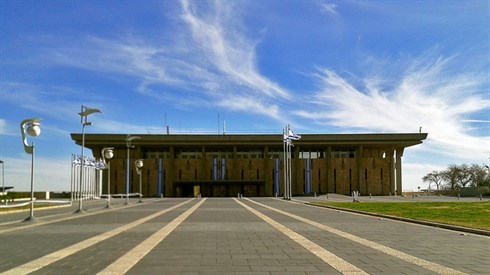- Halacha
- General Questions
58
Question
From my understanding of Talmudic and Halachic sources, men should avoid talking to women as much as possible. Nowadays, almost all jews interact with women, some more than others. In most modern-orthodox communities, co-ed programs and friendships are permitted by parents, on condition that shomer negiyah and yichud are kept.
My question is, what actually is the halacha regarding co-ed interactions. Is it halachically ok, just many barriers are instituted to avoid issues? Or is it not ok, and all these communities use some sort of heter?
Answer
Shalom,
In general, it totally depends on the community and what the youth movement can offer them that they can’t get elsewhere. One “given” is that “One must distance himself from women very, very much” (Shulchan Aruch Ev. H. 21, 1), and co-ed or mixed youth movements apparently are the exact opposite! On the other hand, one of the greatest poskim in the previous century, R. Yechial Ya’akov Weinberg (Resp. Sridei Esh, II, 8) writes that with the problem of assimilation which was rampant in Germany before the war, local leaders like the famed R. Hildesheimer, felt that youth movements like “Ezra”, led by dynamic and idealistic leaders, can make Judaism exciting, relevant, fun and ideological for the teenagers and youth, in a way that families, yeshivas and schools weren’t succeeding. I believe the same is true about many, probably most, kehilot outside of Israel today, as well, and that’s why so many rabbinical authorities cite and rely on the Sridei Esh, Rav Hildesheimer, and the other rabbis in Germany. In addition, in almost all communities in exile, the youth movements are the only place where children can learn about Zionism, aliya, the historical importance of our generation etc. because the rabbis who believe so, have left and made aliya (or feel embarrassed addressing the topic). The only ones, who can and will succeed teaching this, are the young idealistic youth leaders who really are planning aliya, and have the zest to truly influence such a major life decision.
This is directly connected to one of the most important contributions of youth movements, that they successfully channel the natural rebellion of youth towards positive and ideological directions, rather than rebelling against religion and their parents.
Another factor, regarding young adults, is the necessity for a framework where they can meet and hopefully marry not only Jews, but Torah and aliya oriented young people, like themselves. They strengthen each other idealistically from “assimilating”, either religiously or nationalistically, into the exile around them. In turn, they become the next “young, idealistic youth leaders” helping educate the following “generation”, their younger siblings and neighbors.
Some of these points could theoretically be achieved in non-co-ed movements, but if all there is in your community is coed, and it’s unfeasible to start a new separate movement on your own, you must take that into account.
In summary, this is really a subjective question for your local rabbi. The problem is that if a rabbi lives outside of Israel, and maybe sees no significant importance in the void of Zionism and aliya in the local education, than he probably can’t really address the question objectively.
Regarding co-ed interaction of adults, if they are single, than the aforementioned leniency applies, for they want and need to meet and marry other Jews. If the adults are married, it's obviously more problematic for men to socially interact with women who are married to others. If the local rabbi allows it, than he must have a reason, and you should ask him why he does so.
With Love of Israel,
Rabbi Ari Shvat

Omer Days I can shave/cut hair
Rabbi David Sperling | Iyyar 2, 5774

Omer Days I can shave/cut hair
Rabbi David Sperling | Iyyar 2, 5774

corresponding
Rabbi David Sperling | Cheshvan 29, 5782

divorced parents escorting bride
Rabbi Yoel Lieberman | Tishrei 27, 5772

Gentile inferiority due to genetics.
Rabbi Yoel Lieberman | Adar 6, 5785

Bedikat chametz
Rabbi David Sperling | Nisan 11, 5785

Havara- Sefaradic or Ashkenazic Pronunciation
Rabbi Ari Shvat | Nisan 17, 5785






